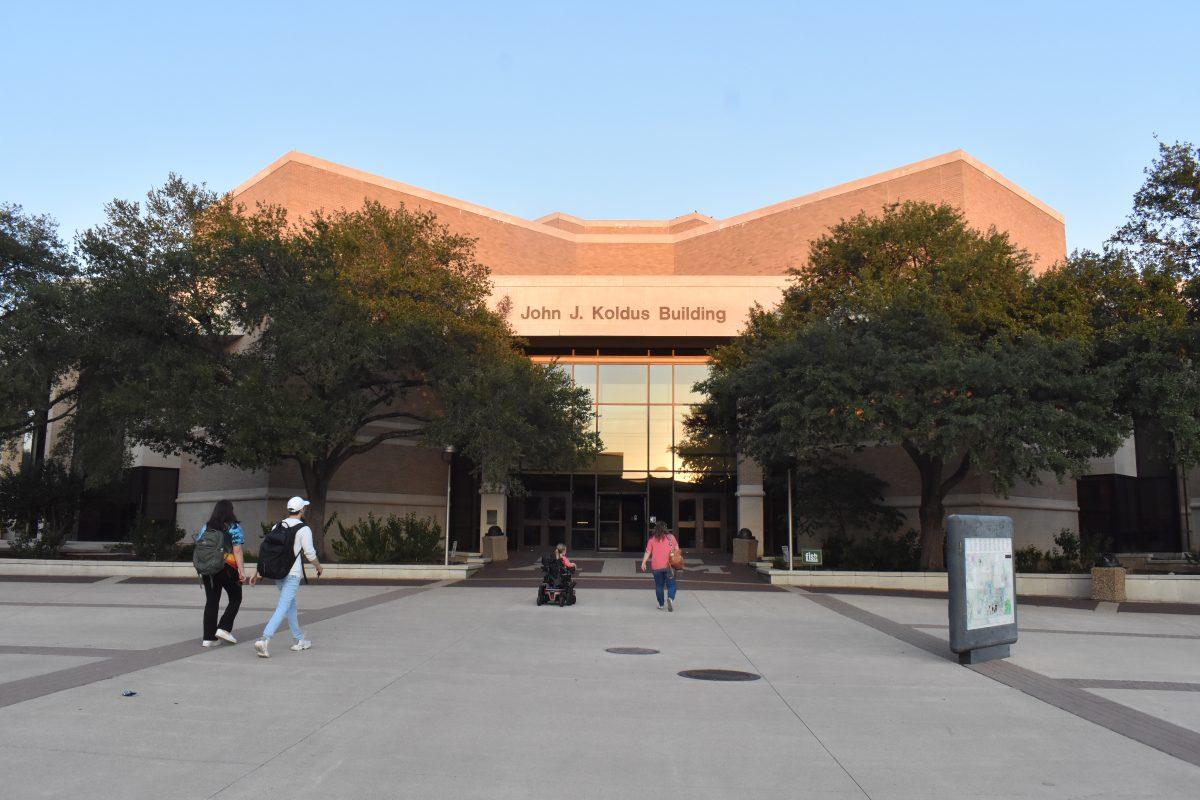Finance sophomore Hunter Kraus was denied a presidential cabinet position after his brother, Student Body President Hudson Kraus, altered the official job description the day of the Student Senate vote to fit Hunter’s lack of student government experience.
The 23-27 vote ends Hunter’s second attempt at the position, with his first ending in a similar fashion.
During the intense debate on the evening of Aug. 30, the Student Senate had two main concerns with Hunter as a candidate.
Firstly, senators alleged Hudson altered the official job description of his brother’s potential position to bolster his argument just hours before the meeting. Secondly, Hunter had no student government experience.
Hudson took the floor an hour into the processions, where he introduced his brother as a nominee for the vacant vice president of campus improvement position.
Hudson showed a presentation on the screen and claimed the role was an entry-level position that did not require previous experience.
“I wanted to refresh you all on the qualifications of this position,” Hudson said. “This comes directly from what we had put on the application slide … No. 1 on the qualifications is: this is an entry-level [Student Government Association, or] SGA position.”
Hudson said a nominee needed only two things: the desire to improve student life across campus and the ability to learn how to be a successful advocate in staff meetings.
Upon finishing the presentation, Hunter entered the chamber to explain his plans for campus improvement. He listed issues such as long lines outside of the Sbisa Dining Hall, difficult parking situations for students and the worsening traffic at the intersection of John Kimbrough Boulevard and Olsen Boulevard.
After fielding questions, the floor opened for debate. Constituency Affairs Chair Marcus Glass rose and was allowed to the front of the chamber to present his case by the Speaker of the Senate Andrew Applewhite.
“This was not what we were given in our first meeting,” Glass said. “The description you see before you has been changed.”
The original position stated prior experience in the SGA was recommended but not required, alongside prior experience serving on a university committee, Glass said.
“In fact, it turns out there was an edit made to the actual descriptions at 11:30 a.m. today,” Glass said. “So, what does that mean for us? Do we disenfranchise the student body by changing what the qualifications were originally for this position?”
Glass said the position was not entry-level due to its large scope and responsibility.
“We’re talking about the vice president of campus improvement, sitting right underneath the chief of staff,” Glass said. “That’s no entry-level position.”
Applewhite then opened the floor for debate again, where Legislative Relations Chair Corbitt Armstrong stood up. Armstrong said he was “shocked” by the alterations, but said it did not mean the senate should reject the nomination.
“There are projects sitting on the table, unused, [that] could have been finished by now, if we decided to stop sitting on our hands, being sanctimonious about qualifications, and give the job to someone who can do it,” Armstrong said.
A secret vote was held, with the senators putting votes into a box passed around by Pro Tempore Robert Hargrove. Applewhite then announced the results.
“With a vote of 23 in favor and 27 opposed, this candidate is not confirmed,” Applewhite said. He then moved on to the next order of business.
Near the end of the meeting, Hudson stood to address the senate.
“I received, unfortunately, some bad advice on the topic,” Hudson said.
He said he had never been student body president before, and he wanted to reflect on how he viewed the position. Hudson said positions and details were still being reframed and that this change was made at “the wrong time.”
“Unfortunately, it reflected badly on myself, and it reflected badly on the executive cabinet,” Hudson said.
After a final roll call, the senators adjourned after nearly three hours of deliberations.
Computer engineering senior Joshua Rummell watched the meeting as a visitor, describing it as “disturbing.”
“Given that his position was a new one, maybe, it could be said that he didn’t know the consequences and that he really was just trying to do what he thought was right,” Rummell said. “I’d like to give him the benefit of the doubt, but clearly, something must be addressed for actions taken here today.”










